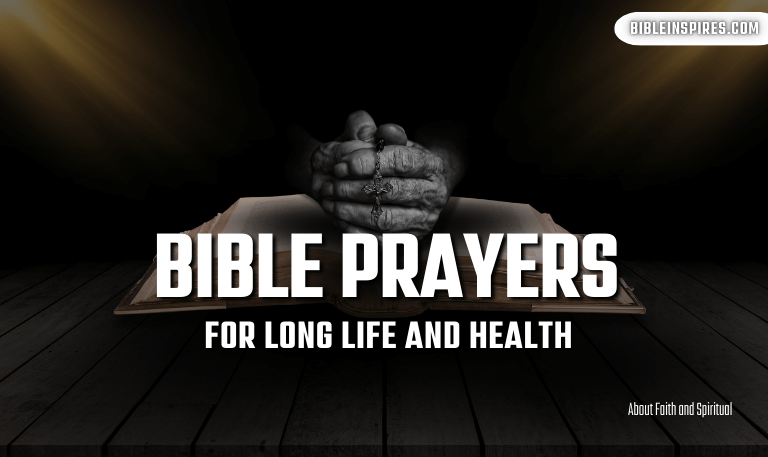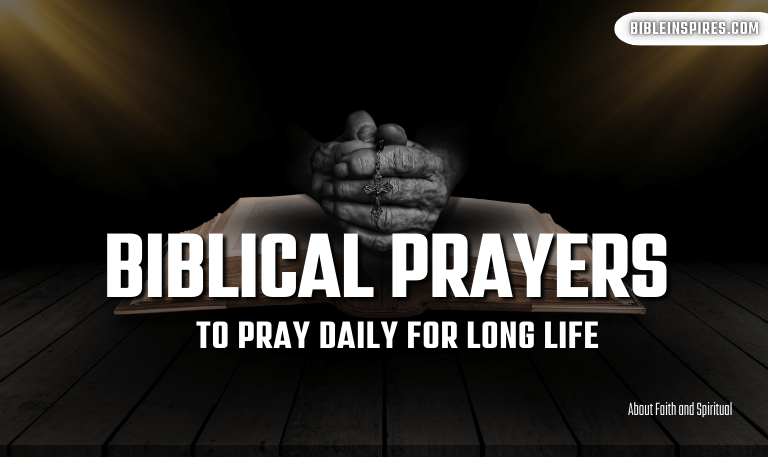Forgiveness is one of the most transformative and pivotal themes in Christian teachings. It’s not just a moral or ethical commandment but a divine principle that has the power to heal relationships, restore peace, and bring redemption. The Bible, both in the Old and New Testaments, is filled with stories that highlight the importance of forgiveness, demonstrating how God’s grace can transform lives.
In this article, we’ll explore some of the most powerful Bible stories on forgiveness, looking at the lessons they offer on mercy, reconciliation, and the divine power of forgiving others. Through these stories, we’ll uncover not only spiritual wisdom but also practical guidance for applying forgiveness in our daily lives.
Understanding Forgiveness in Biblical Context
Before diving into the stories themselves, it’s essential to grasp the concept of forgiveness in the Bible. Forgiveness, as understood in Christian doctrine, is the act of pardoning someone for a wrong they’ve done, choosing to release resentment or the desire for retribution. It’s not about excusing the offense, but rather recognizing the need for healing and restoration in the relationship.
In the Old and New Testaments, forgiveness is seen as both a divine gift and a command. God forgives our sins as an act of grace, but He also calls His followers to forgive others, offering mercy as a reflection of His own mercy.
Read Also: Bible Verses About Forgiveness
Key Bible Verses About Forgiveness
Before delving into specific stories, let’s first take a look at some key Bible verses about forgiveness that provide a foundation for the stories we’ll discuss:
Matthew 18:21-22: “Then Peter came to Jesus and asked, ‘Lord, how many times shall I forgive my brother or sister who sins against me? Up to seven times?’ Jesus answered, ‘I tell you, not seven times, but seventy-seven times.’”
Luke 23:34: “Jesus said, ‘Father, forgive them, for they do not know what they are doing.’”
Ephesians 4:32: “Be kind and compassionate to one another, forgiving each other, just as in Christ God forgave you.”
Colossians 3:13: “Bear with each other and forgive one another if any of you has a grievance against someone. Forgive as the Lord forgave you.”
![Bible Stories on Forgiveness | Transformative Parables [2025] 6 10-importance-of-forgiveness-in-the-bible](https://bibleinspires.com/wp-content/uploads/2025/04/10-importance-of-forgiveness-in-the-bible-1.png)
These verses lay the groundwork for understanding the significance of forgiveness, both as a personal act and a divine directive.
Bible Stories About Forgiveness
Let’s explore some of the most compelling Bible stories about forgiveness that illustrate its power to heal hearts and mend relationships.
1. The Prodigal Son (Luke 15:11-32)
One of the most famous parables told by Jesus, the story of the Prodigal Son is an excellent example of forgiveness and reconciliation. In this story, a younger son asks his father for his inheritance and squanders it on a life of indulgence. After hitting rock bottom, the son decides to return home, hoping to be treated as a servant. However, his father, seeing him from a distance, runs to him with open arms and forgives him without hesitation.
Key Lessons:
Unconditional Forgiveness: The father’s forgiveness was not contingent on the son’s actions but on his return and repentance.
Grace and Redemption: The father’s decision to forgive and restore his son symbolizes God’s grace and the opportunity for redemption, no matter how far someone may have fallen.
Restoration: Forgiveness doesn’t just mean letting go of anger—it means actively restoring the relationship and celebrating the return.
Read Also: Power of Forgiveness in Christian Life
2. Joseph Forgives His Brothers (Genesis 45:1-15)
Joseph’s story is one of betrayal, suffering, and ultimately, forgiveness. After being sold into slavery by his jealous brothers, Joseph rises to a position of power in Egypt. When a famine strikes, his brothers come to Egypt to buy food, unaware that Joseph is now the one in charge. Instead of seeking revenge, Joseph forgives them and reassures them that their actions were part of God’s plan.
Key Lessons:
Forgiveness After Betrayal: Joseph’s forgiveness came after immense personal suffering, showing that forgiveness can be a powerful tool for healing even in the most painful circumstances.
Trusting God’s Plan: Joseph recognized that God had used his suffering to bring about a greater good, teaching us that forgiveness is part of God’s redemptive plan.
Mercy Over Retribution: Joseph’s refusal to punish his brothers shows that mercy is far greater than retribution and leads to healing in broken relationships.
3. David Forgives Saul (1 Samuel 24:1-22)
David had been anointed to be the next king of Israel, but Saul, the current king, was consumed with jealousy and tried to kill him. When David had the opportunity to kill Saul, he chose instead to spare Saul’s life, showing mercy and forgiveness.
Key Lessons:
Forgiveness in the Face of Injustice: David’s ability to forgive Saul, despite Saul’s attempts to kill him, teaches that forgiveness doesn’t depend on the actions of others but on our decision to forgive.
Choosing Peace Over Conflict: David understood that choosing peace and reconciliation would be more fulfilling than continuing the cycle of violence and anger.
4. The Woman Caught in Adultery (John 8:1-11)
![Bible Stories on Forgiveness | Transformative Parables [2025] 7 short-story-on-forgiveness-with-moral](https://bibleinspires.com/wp-content/uploads/2025/04/short-story-on-forgiveness-with-moral.png)
In this story, a woman caught in the act of adultery is brought before Jesus. The religious leaders, looking to trap Jesus, ask whether she should be stoned as prescribed by the Law of Moses. Jesus responds by saying, “Let him who is without sin cast the first stone.” One by one, the accusers leave, and Jesus tells the woman, “Neither do I condemn you. Go now and leave your life of sin.”
Key Lessons:
Grace Over Judgment: Jesus’ response highlights the importance of offering grace rather than judgment, reminding us that we all fall short.
Restoration and Reconciliation: Jesus’ forgiveness allows the woman to begin anew, offering a second chance and the opportunity for transformation.
Read Also: Bible Verses for Forgiving Your Enemies
5. The Forgiveness of the Thief on the Cross (Luke 23:39-43)
![Bible Stories on Forgiveness | Transformative Parables [2025] 8 Bible-Stories-on-Forgiveness](https://bibleinspires.com/wp-content/uploads/2025/04/Bible-Stories-on-Forgiveness.png)
As Jesus was crucified, one of the criminals hanging beside Him mocked Him, while the other acknowledged his own guilt and asked Jesus to remember him when He entered His kingdom. Jesus responds, “Truly I tell you, today you will be with me in paradise.”
Key Lessons:
Forgiveness in the Final Moments: This story illustrates that forgiveness is available at any time, even in a person’s final moments, and that salvation is a gift of grace.
The Power of Repentance: The thief’s sincere repentance and recognition of Jesus’ divinity exemplify the path to receiving forgiveness.
Why Forgiveness is So Difficult: Insights from Biblical Stories
Forgiveness can be incredibly difficult, especially when we have been deeply wronged. These stories help us understand that forgiveness is not about condoning wrongdoing but about releasing the power that anger and bitterness can have over us. Biblical figures like Joseph and David show us that forgiveness is a process that requires both emotional and spiritual strength.
The Importance of Forgiveness in Christian Life
In the Christian faith, forgiveness is more than just a command; it is a pathway to spiritual freedom. When we forgive, we align ourselves with God’s will and allow His grace to flow through us. Forgiveness can lead to personal peace and greater emotional health, allowing us to experience life to its fullest.
Read Also: How to Forgive According to the Bible
Forgiveness and Repentance in the Bible
The Bible teaches that forgiveness and repentance go hand in hand. Repentance is the act of turning away from sin and seeking forgiveness, and forgiveness is God’s promise to cleanse us and restore our relationship with Him. Many of the stories we’ve explored show characters who not only forgive others but also demonstrate a commitment to repentance.
Bible Stories on Forgiveness FAQs
Q: What does the Bible say about forgiving enemies?
A: The Bible teaches that we should forgive even our enemies, as Jesus exemplified in His teachings. In Matthew 5:44, He says, “But I tell you, love your enemies and pray for those who persecute you.”
Q: How many times should we forgive according to the Bible?
A: Jesus taught that we should forgive “seventy-seven times” (Matthew 18:22), meaning we should forgive endlessly, without keeping count.
Q: Is it necessary to forgive someone who hasn’t apologized?
A: While it is ideal to forgive someone who repents, Jesus also taught us to forgive regardless of whether the offender asks for it (Luke 17:3-4).
Q: What if I can’t forgive someone? What does the Bible say?
A: The Bible acknowledges that forgiveness is challenging but encourages us to rely on God’s strength to forgive, as He forgives us first (Ephesians 4:32).
Q: Does God forgive all sins?
A: Yes, God’s forgiveness is available to all who repent, but the Bible does mention the “unpardonable sin” (Matthew 12:31), which involves rejecting the Holy Spirit’s conviction.
Conclusion
Forgiveness is one of the most powerful tools we have in the Christian life. Through stories like the Prodigal Son, Joseph’s forgiveness of his brothers, and Jesus’ own example, we see that forgiveness leads to reconciliation, healing, and restoration. It’s not just an act we do for others, but a way of aligning ourselves with God’s heart.
![Bible Stories on Forgiveness | Transformative Parables [2025] 4 Bible-Stories-on-Forgiveness-Transformative-Parables-[2025]](https://bibleinspires.com/wp-content/uploads/2025/04/Bible-Stories-on-Forgiveness-Transformative-Parables-2025.png)


